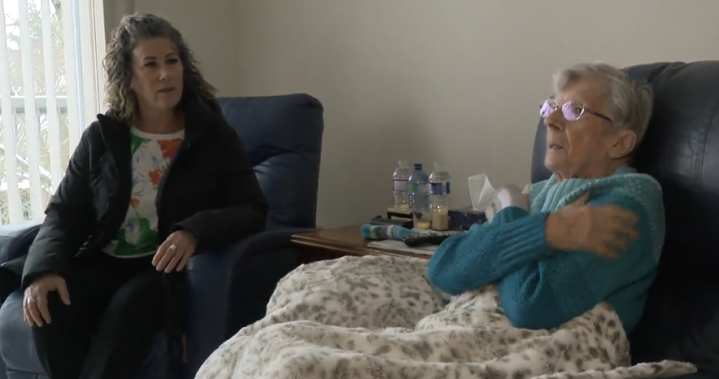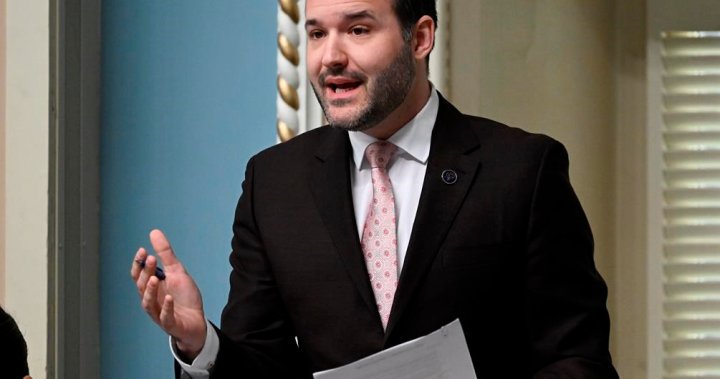American voters and the rest of the world are about to get to know Minnesota Gov. Tim Walz a lot better.
The two-term Democratic governor was tapped by U.S. Vice-President Kamala Harris to be her presidential campaign running mate on Tuesday, ending an accelerated search for a vice-presidential candidate as the race to the White House heats up.
The choice of Walz, 60, came after he quickly emerged as a leading messenger for Democrats, portraying liberal policy positions in a common-sense manner that may appeal to Midwestern voters whose support Harris needs to win the presidency.
He’s also credited as the first to label Republican candidates Donald Trump and JD Vance as “weird,” which has caught fire among the Harris campaign and Democrats in general.
“He’s a pretty safe choice,” said Matthew Lebo, a political science professor at Western University who studies American politics.
“He’s very down to earth and can explain liberal values and what the government’s priorities should be in a way that talks about the social safety net and helping people build their lives, as opposed to ‘we’re taxing you more.’”
Walz’s state also shares a 885-kilometre border with Canada — and a trade economy worth billions of dollars every year.
Walz was born in West Point, Neb., a community of about 3,500 people northwest of Omaha. Walz joined the Army National Guard and became a teacher in Nebraska.
He and his wife Gwen moved to Mankato in southern Minnesota in the 1990s, where he continued his teaching career and coached high school football.
Walz served 24 years in the Army National Guard before retiring from a field artillery battalion in 2005 as a command sergeant major, one of the military’s highest enlisted ranks.
He entered politics in 2006 by defeating a six-term Republican incumbent, Gil Gutknecht, for a seat in the U.S. Congress, first displaying his ability to connect with conservative voters. He also capitalized on anger towards then-president George W. Bush and the Iraq War.
Breaking news from Canada and around the world
sent to your email, as it happens.

Get breaking National news
For news impacting Canada and around the world, sign up for breaking news alerts delivered directly to you when they happen.
During his own six terms in the House of Representatives, Walz became known as a champion of veterans issues. He won praise for helping to reach bipartisan consensus for veterans’ health and education benefits during Trump’s divisive term.
When he successfully ran for the Minnesota governorship in 2018, he portrayed Democratic ideals like union organizing, workers’ rights and a higher minimum wage in ways that appealed to rural middle-class voters who otherwise vote Republican.
“He expresses liberalism in a very Canadian way,” Lebo said.
“He’s a hunter, but understands the sense of gun laws. He is liberal in terms of a wider social safety net.”
As governor, Walz has sought to further deepen economic ties with Canada, which is the state’s largest trading partner by far.
The Minnesota government says total bilateral trade was valued at US$21 billion last year, while exports to Canada were worth US$7 billion, “making Canada the largest single buyer in Minnesota’s $25 billion export portfolio.”
Those exports include energy and agricultural goods, including ethanol, corn and iron ore. Seventy per cent of Minnesota-built snowmobiles are exported to Canada, according to the Business Council of Canada, while Minnesota solely sources its imported natural gas, crude oil and electricity from Canada.
Canada’s consulate general in Minneapolis said in March that “Canada buys more from Minnesota than the next six countries do, combined.”
In June, Walz travelled to Canada with an economic and agricultural delegation that sought to promote their state as a trade and investment destination. Canada and Minnesota each have more than 60 companies operating within each other’s borders, employing thousands of local workers.
Walz met with Ontario Premier Doug Ford at Queen’s Park during the trip, and Ford highlighted the “billions of dollars in two-way trade” between their economies and the need to “protect and grow” those ties.
Lebo said Walz’s understanding of Canada-U.S. trade relations, along with Harris’s background growing up in Montreal, could ensure Canada remains a high priority if they win in November.
The Canadian government has been working to ensure it is prepared for whichever party takes the White House. But particular attention has been paid to the possible return of Trump, who has promised sweeping tariffs on international imports.
Walz has promoted “middle ground” policies that ensure businesses can remain competitive and pursue free trade while also protecting jobs and wages. Harris, meanwhile, could keep in place a focus on “Buy American” policies that began under Trump but continued under U.S. President Joe Biden.
The next U.S. administration will also be overseeing a review of the Canada-U.S.-Mexico Trade Agreement (CUSMA), which was negotiated during the Trump administration to replace NAFTA.
During his first term, Walz managed to compromise with Republicans in a divided legislature to keep social services funded and accessible.
But his second term, with a complete Democratic majority and a huge budget surplus, has seen more sweeping changes. Walz and lawmakers have enacted protections for abortion and gender-affirming care for transgender youth, legalized recreational marijuana, funded free school meals for children and free public college tuition for students in lower-income families, paid family and medical leave, and health insurance coverage regardless of a person’s immigration status.
As always, Walz has managed to portray those liberal causes as common-sense solutions to the issues facing average Americans — and contrasted them with Republican policies.
He’s labelled conservative resistance to medical and reproductive freedom, as well as efforts to ban certain books from school libraries, as “weird” — a word that has since caught on with Democrats, who have pivoted from existential warnings about Trump’s threat to democracy.
“Who’s asking for this crazy stuff the Republicans are doing?” Walz asked on MSNBC last week.
Lebo said the choice of Walz continues the Harris campaign’s strategy of “appearing calm and normal” in the face of Trump’s attacks on Harris’s racial identity and accusations she and Walz will unleash “hell on earth.”
“Vance and Trump are not in the mainstream,” Lebo said.
“(Harris and Walz are) talking about reproductive rights in ways that most Americans agree with them. They’re talking about tax levels in ways most Americans agree with them…. And Walz may bring in these white, rural voters who went to Trump before but are now getting sick of him.”




